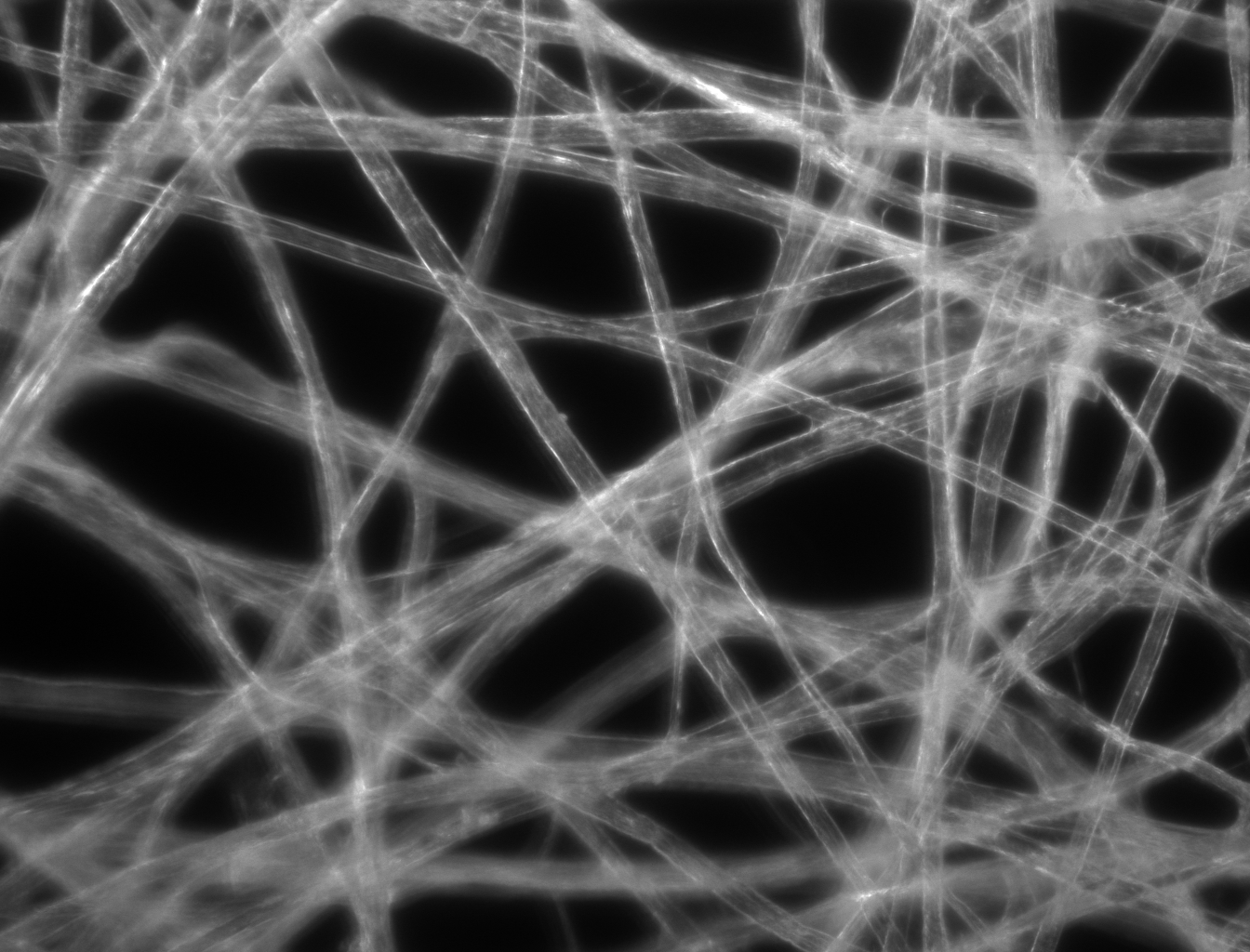
Background
Ultrafiltration (UF) is a method for separating dissolved molecules in a solution; it's used for water purification. Current UF technology employs ceramic micro-filters; the problems with these include high fouling rates and high costs. These problems result from characteristics such as the membrane surface, surface-to-volume ratio, flow rate, etc. Polymeric membranes are being studied as a replacement; they are commercially available, but currently have disadvantages. They have a tendency to clog, fiber breakage, and are more susceptible to chemical and biological attack. There is a need for improved UF system filters that are less expensive and have lower fouling rates with higher flux rates.
Technology
This filtration device is a substrate comprising a scaffold made of nanofibers with diameters from about 1 to 20,000 nanometers. The substrate is coated with a combination of a polymer and at least one nanofiller with a diameter from about 0.3 to 300 nanometers. The coating thickness ranges from 1 to 4,000 nanometers. Also, a scaffold layer is present; it's a nanofibrous scaffold layer with a top and bottom surface. The bottom surface has a greater diameter (about 300 to 10,000 nm) than that of the top surface (about 10 to 500 nm).
Advantages
-Improved filters for use in filtration systems -Less expensive -Lower fouling rates -Higher flux rates
Application
Suitable for microfiltration, ultrafiltration, and nanofiltration membranes
Inventors
Benjamin (1) Chu, Distinguished Professor, Chemistry
KwangSok Kim, Post-Doc. Research Assoc., Chemistry
Benjamin Hsiao, Distinguished Professor, Chemistry
Dufei Fang, Senior Scientist, Chemistry
Licensing Potential
Licensing,Commercial partner,Development partner,Seeking investment
Licensing Status
Available for licensing.
Licensing Contact
Donna Tumminello, Assistant Director, Intellectual Property Partners, donna.tumminello@stonybrook.edu, 6316324163
Patent Status
Patented
8222166
Tech Id
7760
